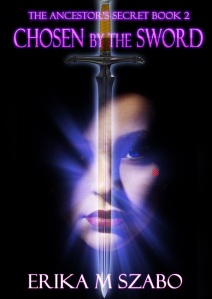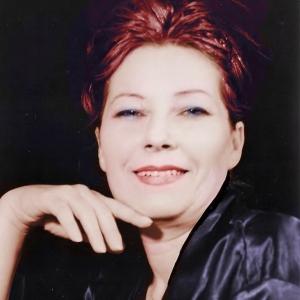 We survived another Christmas! The refrigerator is bursting with leftovers, and we had a wonderful dinner with one of our sons, and one of my brothers. Life is good! The carnivores said the turkey was good, but surprisingly to me, given the amount of teasing I endure at their hands, the Hazelnut Cranberry Holiday Roast en Croute was the star of show, with little of it being left over. The world did not stop in its orbit as the vegan meal was consumed with gusto, and no one left the table hungry!
We survived another Christmas! The refrigerator is bursting with leftovers, and we had a wonderful dinner with one of our sons, and one of my brothers. Life is good! The carnivores said the turkey was good, but surprisingly to me, given the amount of teasing I endure at their hands, the Hazelnut Cranberry Holiday Roast en Croute was the star of show, with little of it being left over. The world did not stop in its orbit as the vegan meal was consumed with gusto, and no one left the table hungry!
I’m always intrigued by the way other authors think, and today, Erika M Szabo, author of The Ancestors’s Secrets series, has consented to answer a few questions for us.
CJJ: Tell us a little of early life and how you began writing:
ES: I became an avid reader at a very early age, thanks to my dad who introduced me to many great books. I started writing educational books twelve years ago when I received my PhD in Alternative Medicine. I love animals, therefore I created the Read for Animals anthology series and published two books with authors and poets to help animals. The story idea for Ancestor’s Secrets series came from my Hun heritage, from the legends and history. I created a magical, fantasy world using bits of real historical facts and incorporating real life events from my years of working as a trauma nurse into the story.
CJJ: I love that you are able to draw on your heritage for your work. Tell us about your most recent book.
ES: In the Ancestor’s Secrets series, present and past blends into a paranormal fantasy tale with intriguing clan secrets, magical heritage, love triangle and Ilona’s exciting and dangerous life in a secret society. Ilona is a young doctor settled into a world of logic and reason. She inherits a world of traditions, well-kept secrets and magical powers, and is left to piece together her clan’s past, using nursery rhymes taught to her by her mother. Learning some of the secrets not only confuses her, but places her in mortal danger. When a sinister man appears, Ilona connects his presence to a series of mysterious deaths. He can influence others to kill her, but why can’t he touch her? There are clues around every corner, and the elusive answers draw her further into the hidden world of her people. As if the mysteries aren’t enough, her life becomes more complicated when she meets a dashing stranger. Although he saves her life by putting his own life in danger, she senses evil in him. The first book of The Ancestor’s Secrets series raises questions such as: what if there is a secret society exists hidden among us with its strict rules and fiercely enforced laws, and certain members come to possess magical powers? What if finding love, despite the obstacles thrown our way, is possible? What if we could have the power to visit the ancestors in the past and create our own future?
CJJ: That sounds intriguing! How did you come to write this novel?
ES: On a rainy afternoon I couldn’t find any new book to read. I was moping around, browsing my bookshelves, mumbling to myself. After a while my daughter had enough and snapped at me, “Mom, stop whining! If you haven’t a book to read, then write one.” Her challenge shocked me, but I started playing with the idea. I’ve never excelled in following rules or formulas, so I discarded the instructions I found in “how to write fiction” books, and made up my personal rules. At first, I started playing with the story just for my own enjoyment, I thought, writing the swirling ideas in my head was far better than being haunted by them. I kept writing for months, and soon I realized that I never had so much fun doing anything in my life before.
CJJ: I always wonder, and my reader do too, do you have a specific ‘Creative Process’ that you follow, such as outlining or do you ‘wing it’?
ES: When I started writing the novel series, I only had a vague outline of the story in my mind, and I kind of let the story develop on its own. Some parts are totally different now than I had originally planned.
CJJ: Many of us write fantasy, but how does your work differ from others of its genre?
ES: The Ancestors’ Secret series is an epic fantasy, heroic romance series written mostly in diary style with paranormal magical powers, ancient legends, love triangle and time travel.
CJJ: We each write for our own reasons, but why do you write what you do?
ES: My favorite genre to read I love to read is magical realism/fantasy stories, therefore it is my favorite genre to write as well.
CJJ: I know why I chose the indie route for my work, but I’m curious as to why you’ve chosen this path.
ES: The first edition of my novel series was published by a traditional publisher. I was not satisfied with the editing, book cover, formatting, as well as the full control they had on the story. I decided to break the contract, form my own publishing company and edit, format and publish the story the way I like it.
CJJ: I had a similar experience! What advice would you offer an author trying to decide whether to go indie or take the traditional path?
ES: Both have advantages and disadvantages. If your book is accepted by a traditional publisher, read the fine lines of the contract and if it doesn’t suit you, then go indie.
I so agree with you, Erika! Thank you for visiting today, and I can’t wait to read these books!
 Book 1, Protected By The Falcon
Book 1, Protected By The Falcon
Ilona is a doctor and is ruled by logic, yet when she starts to develop unusual powers, her beliefs change and she’s thrown into a world of mysteries, traditions and secrets. Nursery rhymes taught by her mother lead her to discover her clan’s past, which still exist with its fiercely enforced laws. A dangerous dark man stalks Ilona who is unexpectedly rescued by a handsome stranger, Zoltan. As their relationship grows, her feelings for best friend, Bela, starts to fade. When her life and the future of her people become threatened, she must gather all her courage and use her inherited powers to fight back. Infused with Hungarian legend, the twisting plot keeps the reader turning the pages of this extraordinary fantasy story. The Ancestors’ Secret series is an epic fantasy, heroic romance series with magical powers, ancient legends, love triangle and time travel that is a great read for fantasy lovers and also suitable for young adults.
http://www.amazon.com/Protected-Falcon-Ancestors-Secrets-Book-ebook/dp/B00LNBSKIY
 Book 2, Chosen By The Sword
Book 2, Chosen By The Sword
In book one, Protected By The Falcon, Ilona is thrust from her easy and steady life and forced to face the unknown, which prompts her to discover the ancient tribal secrets. The rules of her ancient Hun clan that still exist with strict laws suffocate her, but she is resourceful and daring. She discovers secrets and obtains unimaginable powers to protect her sister, who bears the next leader of the clan. If she does not succeed, the fate of her people is at stake. She must sort through her own feelings about the men in her life. Will she choose Bela, her best friend, or the handsome and noble Zoltan? From the time when her people were nomads, the castles of the 14th century to the present, travel through time with Ilona as she struggles to overcome the obstacles placed in her path by ruthless individuals who want to inflict their rule on the Hun clan. The Ancestors’ Secret series is an epic fantasy, heroic romance series with paranormal magical powers, ancient legends, love triangle and time travel that is also suitable for young adults.
http://www.amazon.com/Chosen-Sword-Ancestors-Secrets-Book-ebook/dp/B00RAGLWVI
Short Bio of Erika M. Szabo:
 I became an avid reader at a very early age, thanks to my dad who introduced me to many great books. The writing bug bit me much later, on a rainy afternoon, when I couldn’t find any new book to read. My daughter had enough of my moping around and snapped at me, “Mom, stop whining! If you haven’t a book to read, then write one.” Her challenge shocked me, but I started playing with the idea. What if there is a secret society with strict rules and laws exist hidden among us? What if certain members come to possess magical powers? What if those abilities could be used to do good or evil? I’ve never excelled in following rules or formulas, so I discarded the instructions I found in “how to write fiction” books, and made up my personal rules. At first, I started playing with the story just for my own enjoyment, I thought, writing the swirling ideas in my head was far better than being haunted by them. I kept writing for months, and soon I realized that I never had so much fun doing anything in my life before.
I became an avid reader at a very early age, thanks to my dad who introduced me to many great books. The writing bug bit me much later, on a rainy afternoon, when I couldn’t find any new book to read. My daughter had enough of my moping around and snapped at me, “Mom, stop whining! If you haven’t a book to read, then write one.” Her challenge shocked me, but I started playing with the idea. What if there is a secret society with strict rules and laws exist hidden among us? What if certain members come to possess magical powers? What if those abilities could be used to do good or evil? I’ve never excelled in following rules or formulas, so I discarded the instructions I found in “how to write fiction” books, and made up my personal rules. At first, I started playing with the story just for my own enjoyment, I thought, writing the swirling ideas in my head was far better than being haunted by them. I kept writing for months, and soon I realized that I never had so much fun doing anything in my life before.
If you are interested in seeing more of Erika’s work, here are her links:
WEBSITE: http://www.authorerikamszabo.com
FACEBOOK: https://www.facebook.com/Erika.M.Szabo.ND.Author
TWITTER: https://twitter.com/ErikaMSzabo
LINKEDIN: http://www.lnkd.in/N64qzw
GOOGLE: https://plus.google.com/112402888400847638099/posts
PINTEREST http://www.pinterest.com/erikamszabo/
SMASHWORDS https://www.smashwords.com/profile/view/GoldenBoxBooks
 I developed the habit of keeping a small pocket notebook on hand when I worked at a daytime job. No one knew I was writing a book, but all day long, little ideas would pop into my head and I would jot them on a notepad.
I developed the habit of keeping a small pocket notebook on hand when I worked at a daytime job. No one knew I was writing a book, but all day long, little ideas would pop into my head and I would jot them on a notepad. With the loose outline, I’m more likely to avoid getting sidetracked by interesting but nonessential stuff.
With the loose outline, I’m more likely to avoid getting sidetracked by interesting but nonessential stuff.



















